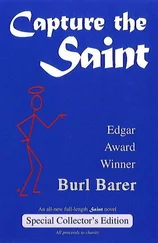Dodie Smith - I Capture the Castle
Здесь есть возможность читать онлайн «Dodie Smith - I Capture the Castle» весь текст электронной книги совершенно бесплатно (целиком полную версию без сокращений). В некоторых случаях можно слушать аудио, скачать через торрент в формате fb2 и присутствует краткое содержание. Жанр: Старинная литература, на русском языке. Описание произведения, (предисловие) а так же отзывы посетителей доступны на портале библиотеки ЛибКат.
- Название:I Capture the Castle
- Автор:
- Жанр:
- Год:неизвестен
- ISBN:нет данных
- Рейтинг книги:4 / 5. Голосов: 1
-
Избранное:Добавить в избранное
- Отзывы:
-
Ваша оценка:
- 80
- 1
- 2
- 3
- 4
- 5
I Capture the Castle: краткое содержание, описание и аннотация
Предлагаем к чтению аннотацию, описание, краткое содержание или предисловие (зависит от того, что написал сам автор книги «I Capture the Castle»). Если вы не нашли необходимую информацию о книге — напишите в комментариях, мы постараемся отыскать её.
I Capture the Castle — читать онлайн бесплатно полную книгу (весь текст) целиком
Ниже представлен текст книги, разбитый по страницам. Система сохранения места последней прочитанной страницы, позволяет с удобством читать онлайн бесплатно книгу «I Capture the Castle», без необходимости каждый раз заново искать на чём Вы остановились. Поставьте закладку, и сможете в любой момент перейти на страницу, на которой закончили чтение.
Интервал:
Закладка:
shape of her that day huddled on the steps, her back view when we were in the car, her brown tweed suit and squashy felt hat, I can't
visualize her face at all. When I try to, I just see the photograph I have of her.
Rose and I went back to the car with her, but Father wandered round
until it was dark. I remember seeing him come out on the castle walls near the gatehouse -and marveling that I had been up there myself. Even in the dusk I could see his gold hair and splendid profile. He was
spare in those days, but broad-always a large person.
He was so excited that he started to drive back to King's Crypt at a
terrific pace -Rose, Thomas and I simply bounced about at the back of the car. Mother said it wasn't safe with the roads so narrow and he
slowed down to a snail's pace which made Rose and me laugh a lot.
Mother said: "There's reason in everything and Thomas ought to be in bed." Thomas suddenly sat up and said: "Dear me, yes, I ought," which made even Mother laugh.
The next day, after making enquiries, Father went over to Scoatney
Hall. When he got back he told us that Mr. Cotton wouldn't sell the
castle, but had let him have a forty years" lease on it.
"And I can do anything I like to the house," he added, "because the old gentleman agrees I couldn't possibly make it any worse."
Of course, he made it very much better--whitewashing it, unearthing the drawing-room paneling from beneath eight coats of wallpaper, pulling
out the worst fireplaces, the false ceilings, the partitions in the
kitchen. There were many more things he meant to do, particularly as
regards comfort--I know Mother wanted some central heating and a
machine to make electric light; but he spent so much on antique
furniture even before work at the castle began that she persuaded him to cut things down to a minimum. There was always a vague idea that
the useful things were to come later; probably when he wrote his next book.
It was spring when we moved in. I particularly remember the afternoon we first got the drawing-room straight. Everything was so fresh- the
flowered chintz curtains, the beautiful shining old furniture, the
white paneling--it had had to be painted because it was in such a poor condition. I was fascinated by a great jar of young green beech
leaves; I sat on the floor staring at them while Rose played her piece
"To a Water Lily" on Mother's old grand piano. Suddenly Father came in, in a very exulting mood, to tell us that there was a surprise for us outside the window. He flung the mullioned windows open wide and
there on the moat were two swans, sailing sedately. We leaned out to
feed them with bread and all the time the spring air blew in and
stirred the beech leaves. Then I went into the garden, where the lawns had been cut and the flower-beds tidied; there were a lot of early
wallflowers which smelt very sweet. Father was arranging his books up in the gatehouse room. He called down:
"Isn't this a lovely home for you ?"
I agreed that it was; and I still think so. But anyone who could enjoy the winter here would find the North Pole stuffy.
How strange memory is! When I close my eyes, I see three different
castles--one in the sunset light of that first evening, one all fresh and clean as in our early days here, one as it is now.
The last picture is very sad because all our good furniture has
gone-the dining-room hasn't so much as a carpet; not that we have
missed that room much--it was the first one we saw that night we
explored the house and was always too far from the kitchen. The
drawing-room has a few chairs still and, thank goodness, no one will
ever buy the piano because it is so big and old. But the pretty chintz curtains are faded and everything has a neglected look. When the
spring comes we must really try to freshen up our home a little-at
least we can still have beech leaves.
We have been poor for five years now; after Mother died, I fear we
lived on the capital of the money she left. Not that I ever worried
about such things at the time because I always felt sure Father would make money again sooner or later. Mother brought us up to believe that he was a genius and that geniuses mustn't he hurried.
What is the matter with him his And what does he do all the time his I wrote yesterday that he does nothing but read detective novels, hut
that was just a silly generalization, because Miss Marcy can seldom let him have more than two a week (although he will read the same ones
again and again after a certain lapse of time, which seems to me
amazing). Of course he reads other books, too. All our valuable ones
have been sold (and how I have missed them!) but there are a good many of the others left, including an old, incomplete Encyclopedia
Britannica;
I know he reads that and he plays some kind of a game following up
cross-references in it. And I am sure he thinks very hard. Several
times when he hasn't answered my knock on the gatehouse room door I
have gone in and found him staring into space. In the good weather he walks a lot, but he hasn't now for months. He has dropped all his
London friends.
The only friend he has ever made down here is the Vicar, who is the
nicest man imaginable; a bachelor with an elderly housekeeper. Now I
come to think of it, Father has dodged seeing even him this winter.
Father's un sociability has made it hard for any of us to get to know people here--and there aren't many to know. The village is tiny: just the church, the vicarage, the little school, the inn, one shop (which is also the post office) and a huddle of cottages; though the Vicar
gets quite a congregation from the surrounding hamlets and farms. It
is a very pretty village and has the unlikely name of Godsend, a
corruption of Godys End, after the Norman knight, Etienne de Godys, who built Belmotte Castle. Our castle--I mean the moated one, on to which our house is built- is called Godsend, too; it was built by a later de Godys.
No one really knows the origin of the name "Belmotte"-the whole mound, as well as the tower on it, is called that. At a guess one would say
the "Bel" is from the French, but the Vicar believes in a theory that it is from Bel the sun god whose worship was introduced by the
Phoenicians, and that the mound was raised so that Midsummer Eve votive fires could be lit there; he thinks the Normans simply made use of it.
Father doesn't believe in the god Bel theory and says the Phoenicians worshipped the stars, not the sun. Anyway, the mound is a very good
place to worship both sun and stars from.
I do a little worshipping there myself when I get time.
I meant to copy an essay on castles I wrote for the school History
Society into this journal, but I find it is very long and horridly
overwritten (how the school must have suffered), so I shall paraphrase it briefly:
CASTLES
In early Norman times, there seem to have been mounds with ditches and wooden stockades as de fences Inside the de fences were wooden
buildings, and sometimes there was a high earthen motte to serve as a lookout place. The later Normans began building great square stone
towers (called keeps), but it was found possible to mine the corners of these- mining was just digging then, of course, not the use of
explosives --so they took to building round towers, of which Belmotte is one. Later, the tower-keeps were surrounded with high walls, called curtain walls.
These were often built in quadrangle form with jutting towers at the
gatehouse, the corners and in the middle of each side so that the
defenders could see any besiegers who were trying to mine or scale the walls, and fight them off. But the besiegers had plenty of other good tricks, notably a weapon called a trebuchet which could sling great
Читать дальшеИнтервал:
Закладка:
Похожие книги на «I Capture the Castle»
Представляем Вашему вниманию похожие книги на «I Capture the Castle» списком для выбора. Мы отобрали схожую по названию и смыслу литературу в надежде предоставить читателям больше вариантов отыскать новые, интересные, ещё непрочитанные произведения.
Обсуждение, отзывы о книге «I Capture the Castle» и просто собственные мнения читателей. Оставьте ваши комментарии, напишите, что Вы думаете о произведении, его смысле или главных героях. Укажите что конкретно понравилось, а что нет, и почему Вы так считаете.












